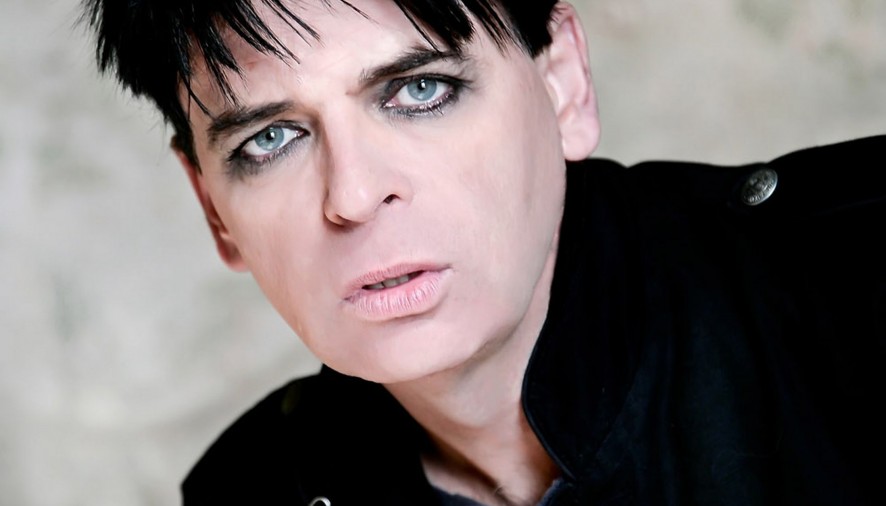The career of Gary Numan is one of ups and downs. From his meteoric rise around 1980, to his musical doldrums in the late 80’s and early 90’s, and finally his resurgence over the last decade, his staying-power alone should be credited. However, when you consider the success and influence that he has achieved over his long career, it makes the journey all the more impressive.
The first turning point in Numan’s musical career was a stroke of luck that would mark him as the one to bring electronic music to the masses. The early incarnations of Gary’s music took the form of punk three-piece Tubeway Army who entered the studio to record their self-titled debut album in 1978. This was to be the moment that he first encountered the Minimoog synthesiser and would find the sound that would make him a musical icon. It wasn’t until Tubeway Army’s second release though, Replicas (1979), that this sound would truly emerge, seeing the album rocket to the top of the charts.
Following this success, Numan (now releasing music under his own name) released two more albums within 12 months, both receiving similar commercial success. Both Pleasure Principle (1979) and Telekon (1980) saw the continued usage of electronic elements with the development of Numan’s blend of cold robotic sounds with the organic human.
Following the success of these three albums, Numan withdrew from touring in 1981, playing a farewell tour that closed with three nights at Wembley playing in front of thousands of adoring fans. This was to be another turning point in his career. The aim of this withdrawal was to focus on constructing albums that were more musical. However, with each subsequent release, fans heard less and less of Numan in his records, his parts fading into the background behind saxophones and backing singers. By the early 90’s, his career was all but over, with near to no commercial recognition and a failed attempt at starting a record label under his belt.
It was at this point, however, that something interesting happened: the 90’s were to be the time that artists from all corners would reveal the influence that Gary Numan had had on the shape of music. From Hip Hop and Breakbeat pioneer Africa Bambaataa to Industrial Metallers Fear Factory, artists across the world were citing Gary Numan as a major influence. This saw him become one of the most covered and sampled artists around, one of the most notable cases being Basement Jaxx’s “Where’s Your Head At” which sampled from both Telekon and Pleasure Principle.
Possibly the artist who shouts the loudest about Numan’s influence on his music though is Trent Reznor of Nine Inch Nails. This influence is particularly noticeable on Reznor’s Nine Inch Nails debut, Pretty Hate Machine (1989), which harks back to the Numan’s early synth-based pop music. That Reznor cites Numan as one of his most influential and favourite artists says great things about Numan’s work. It is this appreciation that manifested itself in the form of a cover of Numan’s “Metal”, a song which Reznor would call upon him to perform live at his farewell shows in 2009.
By the end of the 90’s, a new Gary Numan stepped into the fold. From the outset it became clear that this reincarnation was heavily influenced by Reznor’s work with Nine Inch Nails. His releases started to take a darker, more industrial form. However, more importantly, these new compositions saw the return of Gary Numan to the forefront of his own music. This has seen him add to his devoted fan base as a new generation discover his music.
It is these devoted fans who have loyally queued up in the cold for the shows that he has put on during this month. Following a three-night residency at the London Forum, each night playing one of his three classic albums in its entirety, he finishes the tour with a sold-out show at the Manchester Academy. From the moment that the crowd set foot in the venue, chants of “Nuuuuuman!” ring around the Academy. The support band Outfit take this in their stride with the lead singer admitting to the crowd “I know I’m not Gary Numan mate, I’m working on it…”. From the moment Numan sets foot on the stage, it is clear that this night is for the fans, with the setlist consisting solely of the classic hits that they all know and love. Every song has them singing along at the top of their voices, with the loudest response coming with the truly anthemic “Are “Friends” Electric?”. Gary Numan doesn’t say much on stage, letting his music do the talking for the most part. However, when he expresses his thanks to the crowd at the end of the night for their continued support, you can tell it is heartfelt appreciation from a humble icon.
Keiran Suchak

